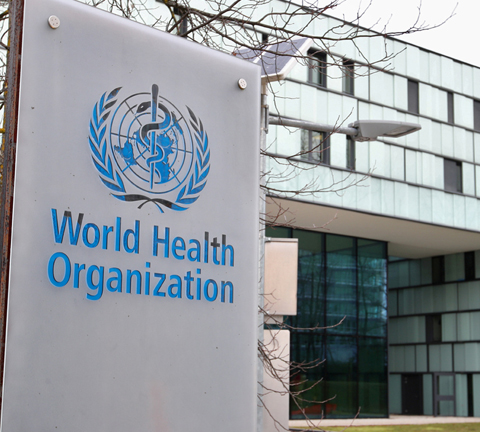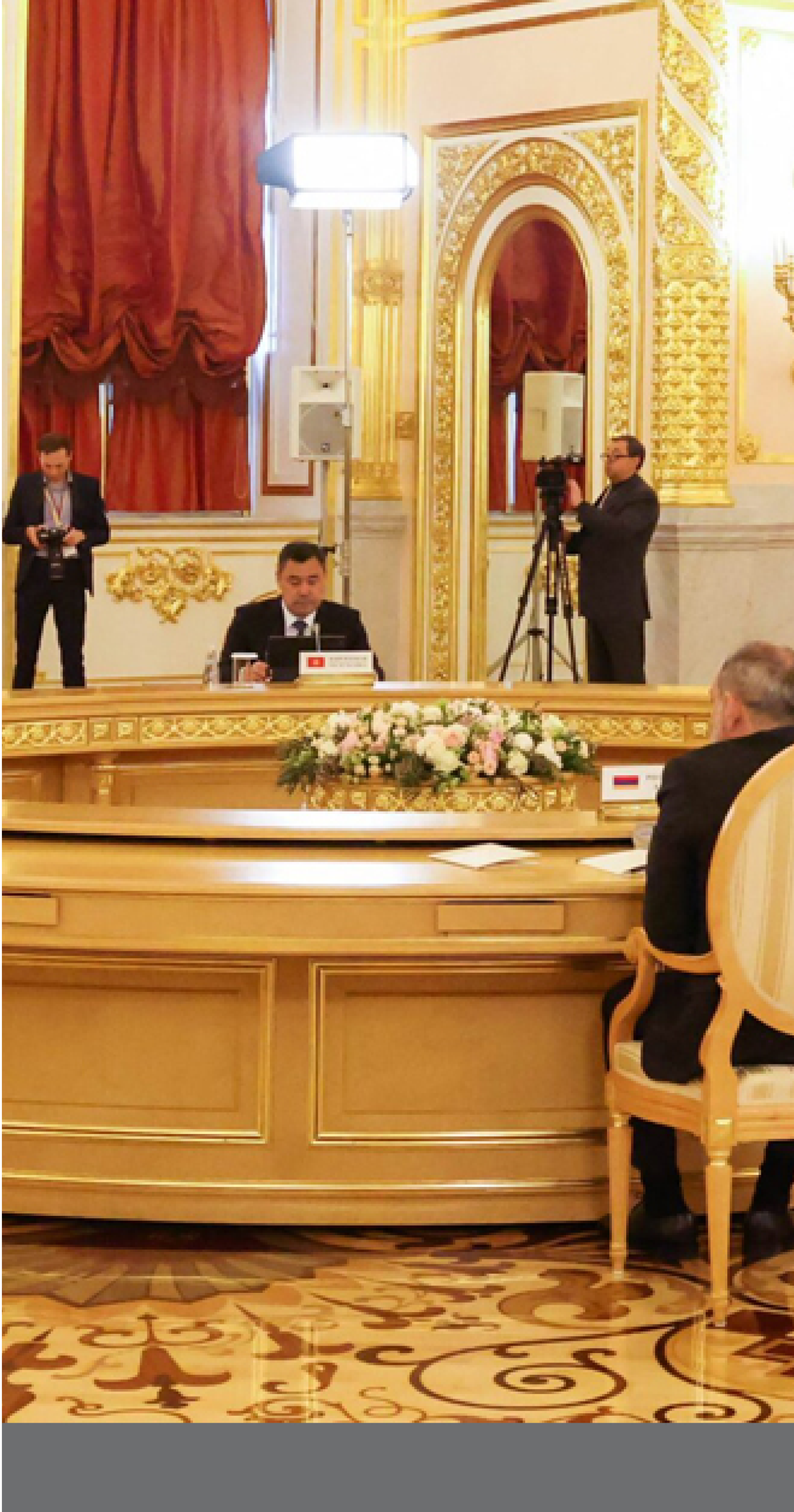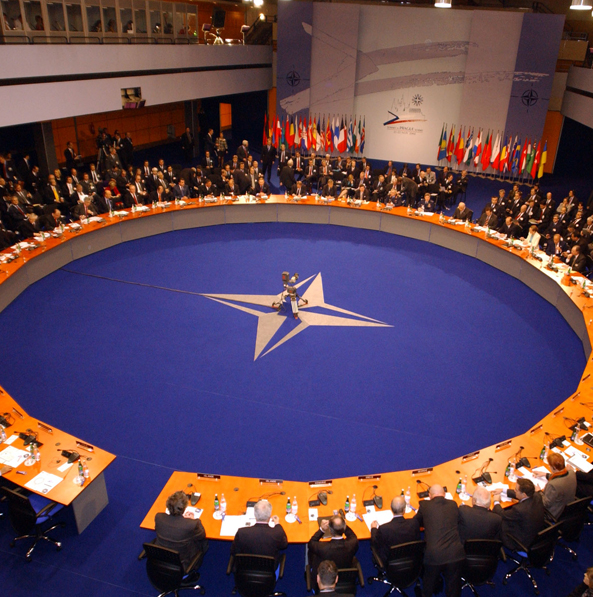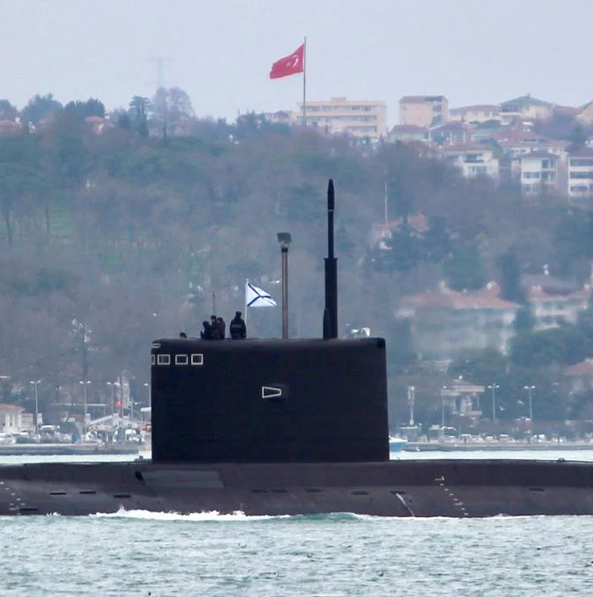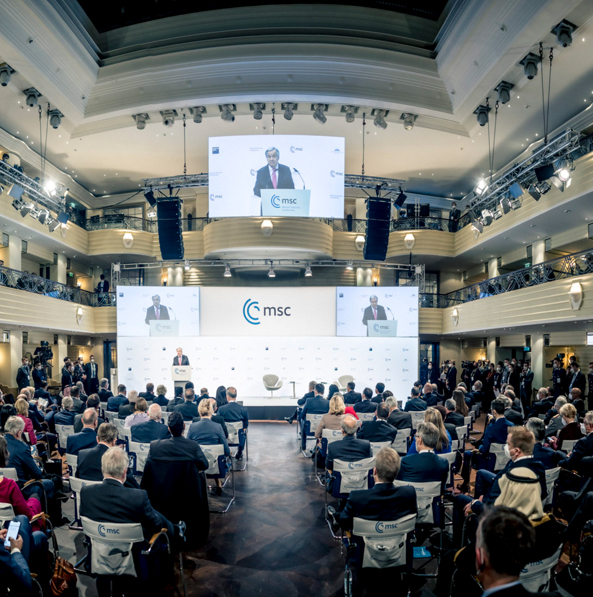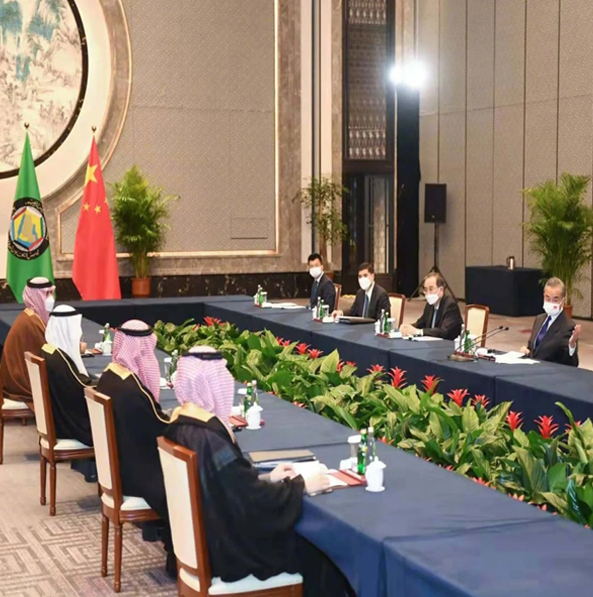Introduction
The World Health Organization is a UN agency charged with spearheading international public health efforts, including facing threats from infectious and communicable diseases, within an interactive mechanism between it and its member states in a way that allows providing information and coordinating national responses according to available data.
Since its founding in 1948, WHO has faced criticism and praise alike. While it has played a prominent role in combating many of the world's stressful diseases such as smallpox and polio, critics have pointed to its failure to respond to pandemics and other diseases such as the 2014 Ebola outbreak and Covid-19, although its regulations have undergone reforms and improvements.
This paper addresses the reality of the World Health Organization as an institution formed by member states that draw its policies and assess its performance. The paper puts forward a basic hypothesis that the organization’s failure to respond to Covid-19 is the result of its members’ failure to develop an institution capable of developing strategies and setting appropriate protocols and regulations.
1. Doubts and criticisms about WHO's transparency and credibility
WHO has come under a lot of criticism since the first day of the outbreak. Eyes were turned to it as the only health authority with global jurisdiction. The answers it provided to the main concerns about the disease and the nature of its spread and its speed were questionable.
Many reports indicated a set of contradictions and fluctuations in the organization’s positions and judgments. It provided information without verifying it, the most important of which related to the risk of spread from human vectors. WHO quoted Chinese officials claiming that there is no concrete evidence of human-to-human transmission, and in the meantime, its officials encouraged travel as usual.
Among the other criticisms against the organization was that it said that it is not necessary for non-infected individual and medical personnel to wear protective masks. On April 1, 2020, it urged only patients and the associated medical staff to wear the mask, but later on it updated its directives and recommended wearing masks to all people.
Along these, experts point out that once WHO got the right answers it realized the necessity of declaring a Public Health Emergency of International Concern (PHEIC), a high level of preparedness that is only declared by WHO.
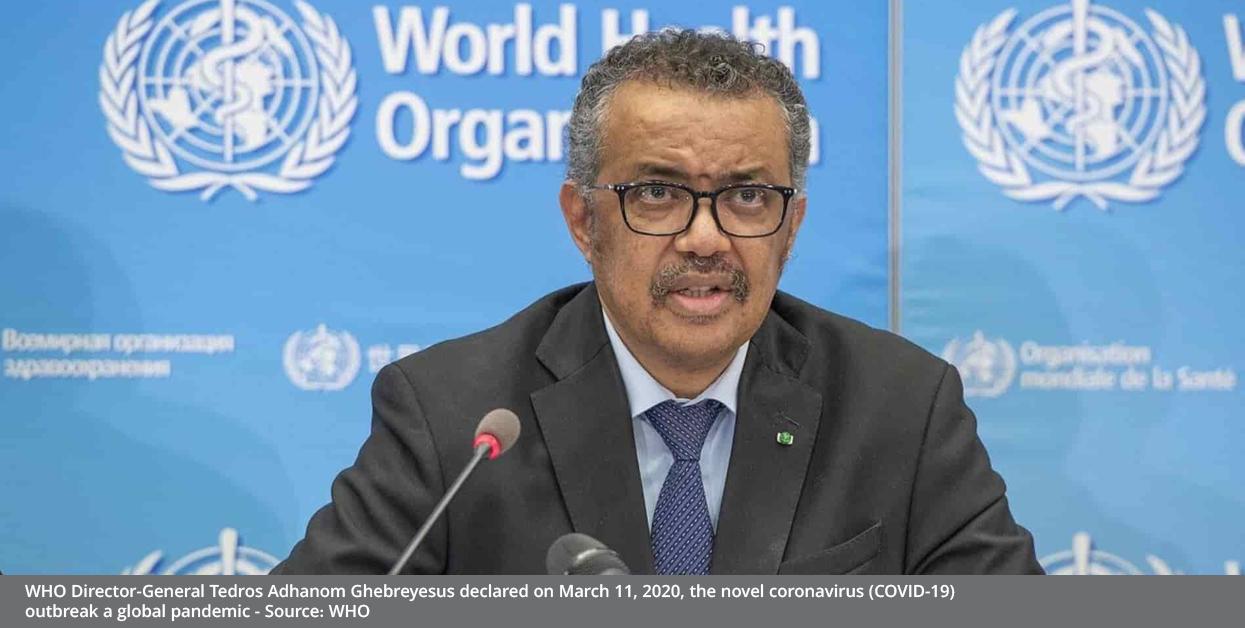
This declaration aims to warn countries and drive them to take quick and effective measures to combat the outbreak of the pandemic, direct support to low and middle-income countries, and coordinate efforts and funding for research and development on vaccines and the necessary health protocols. It also obliges countries to notify WHO of developments and information related to the pandemic.
The follow-up to this declaration shows that many countries are in line with the significance of the message it provides. Former US President Donald Trump declared a state of emergency on March 13, 2020, coinciding with the declaration issued by WHO. In the week that followed the announcement, nearly 16 countries imposed lockdowns of varying degrees.
Nevertheless, experts believe that the declaration and its timing are ineffective, as the outbreak at the time is no longer limited to specific regions, but rather is spreading on a global scale. Here, critics pointed to the organization's failure to lead one of the most important global health issues, and instead leaned behind Chinese propaganda, disregarding the fact that it was able to question the information provided by China and the possibility of relying on non-governmental sources as per its internal regulations.
Trump was not the first to criticize the organization, as some saw it as collusion with China before announcing the suspension of its funding and withdrawing from it. There has been talk - going on for decades - about the health organization and its decisions being dependent on economic and political issues - instead of relying on science. In 2000, French journalist Bertrand Deveaud, and professor of economics, Bertrand Lemennicier, published a book entitled WHO: The Sunken Complex of Public Health": deviations and failures of the United Nations, in which the authors discussed the WHO’s bias towards economic and political interests at the expense of public health interest.
However, despite their admission of the mistakes made by WHO, many experts blame the countries that tried to hide their internal failure to control the virus and adopt appropriate strategies in order to respond to the pandemic by holding the organization responsible for this. Here, a study published in March 2020 on the American Society of International Law website concluded that WHO had fulfilled its obligations in facilitating the transfer and management of epidemiological information and sharing effective national strategies across global networks.
In light of this, actual decision-making rests with governments, which is, in the first place, a measurement tool of the success or failure of countries in responding to the pandemic. While the response of many countries showed their ability to control and limit infection within their territories independently of the decisions of WHO, as in Australia, New Zealand, Belgium, Finland and Singapore, different countries suffered from an increase in the number of deaths and infections, as in the United States, Italy, and UK.
2. Reconsidering WHO regulations
When judging the effectiveness of WHO, there are important issues that should be taken into account, such as the nature of its legal regulations, the effectiveness of its 194 member states, and its financial system based on voluntary contributions. All of this, of course, leads to a decision-making mechanism within the organization to harmonize the needs of its members on the one hand, the goals of donor countries on the other hand, and then again its goals as an institution concerned with public health.
Even pre-Covid-19, the success of WHO was contingent upon the compliance of the member states and the concerned countries with two main aspects, namely global solidarity, and the delivery of information in a transparent and accurate manner. WHO's experience with the severe acute respiratory syndrome (SARS) in 2003 reflected the need to improve communication and cooperation on risks and developments in order to ensure control of the outbreak and develop appropriate strategies to reduce its health, economic, social and psychological impacts, according to the findings of the 2003 World Health Organization World Conference on SARS.
In response, WHO, in 2005, reviewed and updated its International Health Regulations, under which countries were requested to improve their epidemiological surveillance and report health risks. The regulations also allowed the organization to verify events within countries, determine whether the situation requires the declaration of a global emergency and coordinate appropriate response.
In fact, the success of these new regulations depends on the extent to which countries cooperate with the Organization and between each other, as this is the main part of the control and recovery strategies. While international law obliges states to report cases and information that have a public health impact, the powers that WHO and UN agencies have - in general - remain discretionary powers, and they do not have the ability to enforce them without the approval of member states.
This has happened during the Covid-19 pandemic. According to Think Global Health, China's political requirements have overshadowed the necessity of its cooperation with WHO. Therefore, it is not surprising that the official statements of Chinese officials - at the beginning of the crisis - reflected a denial of the existence of a truly concerning health condition.
Historically, states have always been reluctant and apprehensive about reporting when it comes to pandemics. Covid-19 was not the first pandemic the world faced in the same way - even before the founding of the World Health Organization. Responding to epidemics and preserving the sovereignty and prestige of states was cumbersome. This became evident in the international negotiations on the necessity of adopting international health regulations to combat cholera, which were initiated in 1834. Given the concern at that time about international trade and state sovereignty; 75 years later, in 1909, these regulations were eventually passed, but with very narrow frameworks.
The foregoing points to the fact that measuring the effectiveness of WHO is bound to the behavior and objectives of its member states. This is what Steven Hoffman, Director of the Global Strategy Lab and Professor of Global Health Law at York University, referred to when saying that WHO can only be as strong and effective as its member states want it to. While many countries fear of public health impact on their status, diplomacy and economy, WHO finds itself under varying pressures from its members, and in many cases it exercises "self-control" for fear of losing funding from donor countries.
3. Between calls for reform and its feasibility
Post-SARS, the World Health Organization has responded to calls to reformation and improvement of its ability to respond to and combat epidemics, yet there is much to be done. The matter is not limited to developing its regulations and others, but also to the need to reform its institutional structures, get rid of excessive internal bureaucracy -according to some experts - and control its budget which has become highly burdensome.
WHO, unlike most of US agencies and other global organizations, is distinguished by vast structures and proximate independence. It includes 6 regional offices, each with its own cadres and administrative office, which is elected by the countries of the region, the matter which gives it such independency from the headquarters, not to mention that it includes 150 country offices. This expansion adds burdens that make it more difficult to operate as a single institution and weakens the centralization of decision-making and coordination with the extending network.
In the same context, this expansion increases the pressure on the Organization's budget and doubles the challenges it faces. Since 2010, the countries of the world have dealt with the repercussions of the financial crisis by scaling their expenditures and reducing their commitments to WHO. During the period 2012-2013, WHO dismissed 300 staff, among whom were many experts and epidemiologists.
Although voluntary contributions from member states increased from $3.7 million in 2015 to $4.2 million until the third quarter of 2020, most of these contributions were directed towards specific projects and programs, and they did not contribute to enhancing the Organization's ability to lead a clear response in confronting epidemics. When the Ebola virus broke out, it was forced to reduce its budget to control it, after it failed to provide $600 million to build and manage new investigation and treatment centers in Liberia, Guinea, and Sierra Leone, in addition to providing safe burial sites for the dead of those countries.
While the Organization failed to contain the disease in those countries, its experience in the Democratic Republic of the Congo reflected the extent of its need for solidarity and funding. The Congolian government, in cooperation with WHO, managed to control the spread of the epidemic, despite the many difficulties.
In the same vein, professor of Global Health at King’s College, Richard Sullivan, highlighted the great responsibilities of the Organization and the many issues it is involved in. In addition to its responsibility to anticipate and prepare for infectious diseases, it bears other responsibilities such as family-related issues, non-communicable diseases such as heart disease, food and vaccination issues, all of which is done without the availability of new financial resources.
In light of this, we can realize the drastic impact of the withdrawal of former US President Donald Trump from WHO and the suspension of its funding of $400 million annually, before President Joe Biden rejoined it, at a time when Trump should have focused on combating the epidemic, international solidarity and joint action, and taking measures that countries consider appropriate after the threat is passed.
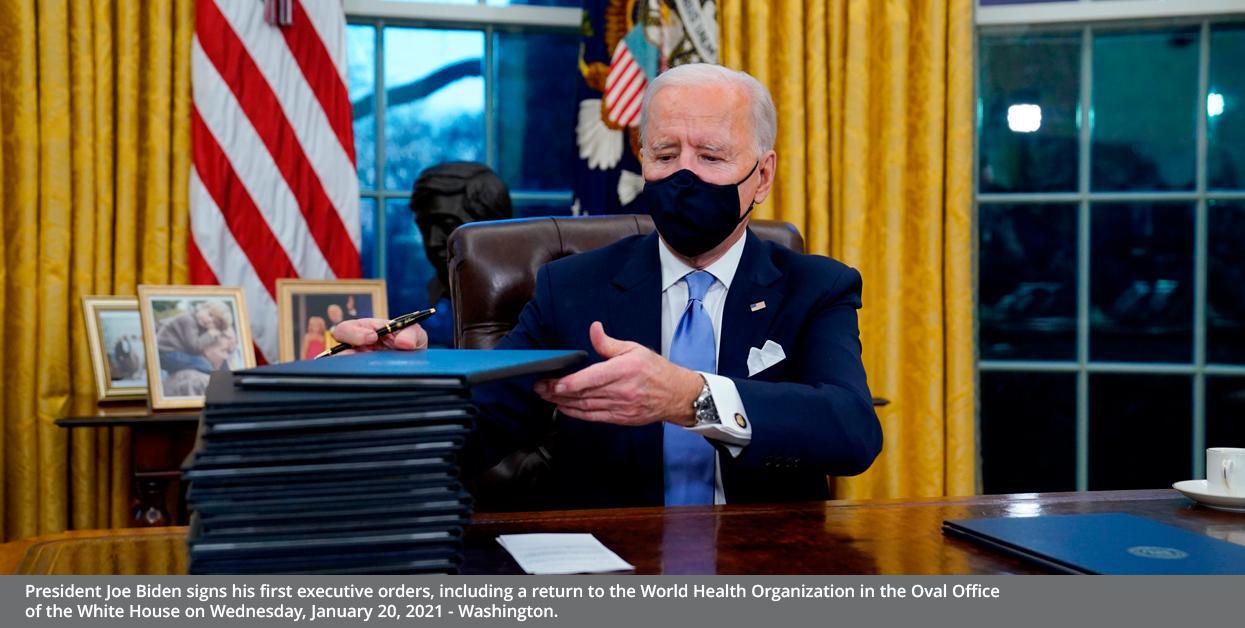
Conclusion
History has shown that dealing with epidemics and infectious diseases is not easy. The ability of states to adopt a stable and specific response is challenging and subject to many economic considerations, concerns related to sovereignty, and national legal regulations that differ even within the countries themselves. Therefore, epidemics have always been one step ahead of preparedness and control measures at the global level.
The existence of international organizations with their roles set and specifies since the WWI, however, makes no difference. First and foremost, they are subject to the frameworks set by member states that plan the Organization’s policies according to their whims and desires, for there is hardly any international organization or body that does not bow to the will and orientations of the most powerful.
Even in times of pandemics, global polarizations are evident in the corridors of the World Health Organization, and its assessments are also subject to ideological and political considerations. There is a difference in the perception of the Organization within the same country. In the US, for example, about 70% of Democrats approve of the positive role that WHO has played in handling Covid-19, compared to only 32% of Republicans, according to Pew Research Center.
In sum, judging the effectiveness of the World Health Organization in isolation from the state of the international system is unfair. Whereas viewing the Organization as a reflection of the policy of its member states shows that the criticisms leveled at the Organization are in fact criticism of the positions of its member states and of the deficiencies in global coordination and joint action. The demands that the Organization should be stronger than the agenda of its members will ultimately lead to the loss of support and funding provided to it, as was the case with the United States under Trump's administration.
Keep in touch
In-depth analyses delivered weekly.

Related Analyses:







